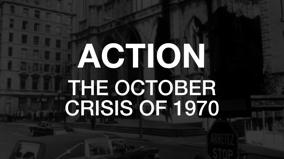Imperfect Union: Canadian Labour and the Left - Part 1 - International Background - Canadian Roots
A look at the problematic relationship of Canadian unions and the New Democratic Party on the eve of the 1980s, as the Socialist International meets in Vancouver. This triggers a flashback to the Industrial Revolution in Great Britain, and the birth of both modern trade unions and democratic socialism. The influence of British, American and European immigration, of American trade unions, World War 1 and other events provide a turbulent and fascinating backdrop to the evolution of the Canadian labour-socialist alliance. Part 1.

Details
-
directorArthur Hammond
-
producerArthur Hammond
-
scriptArthur Hammond
-
executive producerJohn SpottonDon HopkinsJohn Taylor
-
cameraJohn WalkerEugene BoykoJoan Hutton
-
soundJohn UhthoffRobert YoungPeter Clements
-
editingJack MorbinJohn Kramer
-
sound editingAndré GalbrandJean-Pierre ViauAndré Chaput
-
re-recordingHans Peter StroblAdrian Croll
-
narratorJill Frappier
Education
Pedagogical evaluations and study guides are only available to CAMPUS subscribers.
CAMPUS
Features designed specifically for teachers. Learn more
Already subscribed? Sign in











